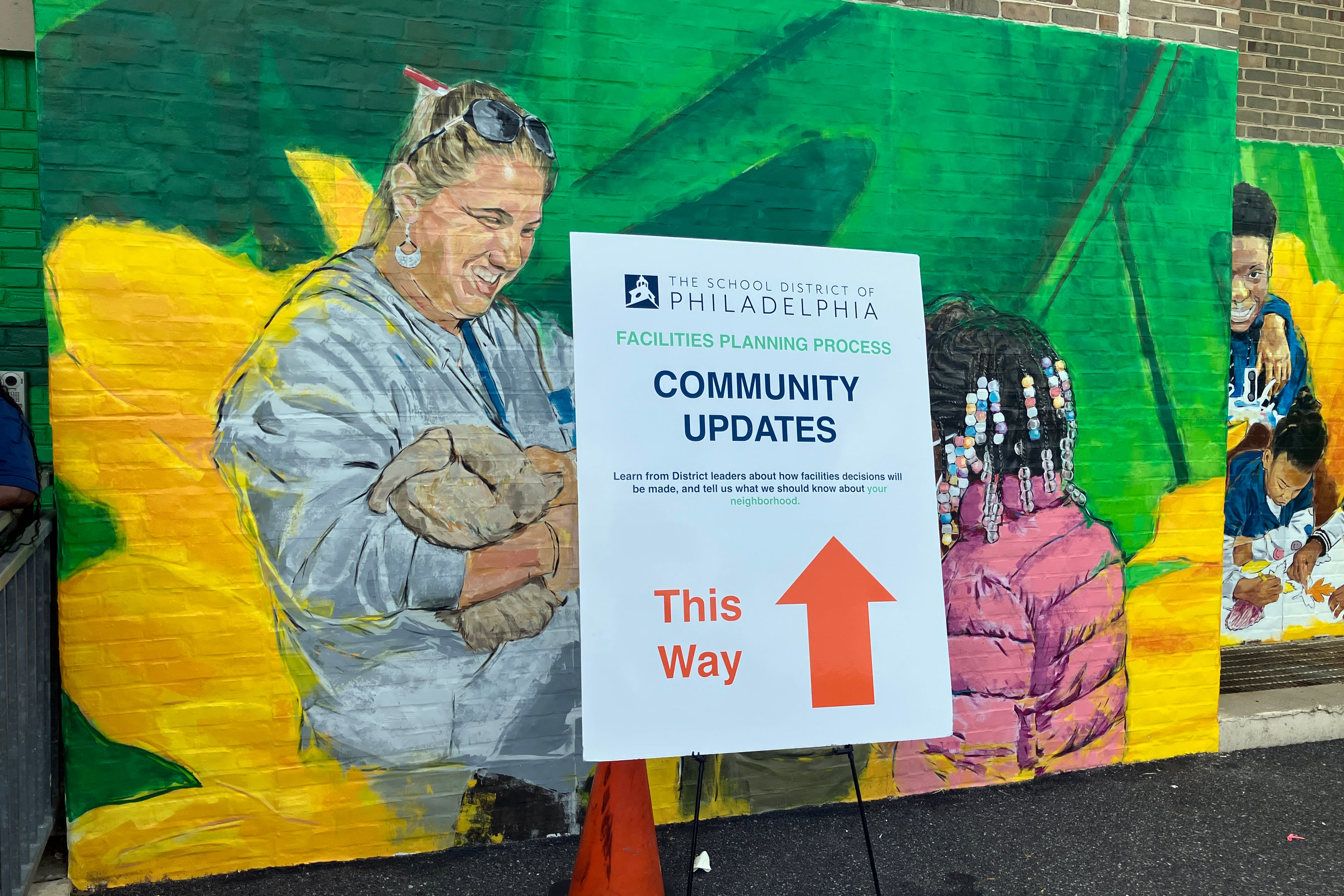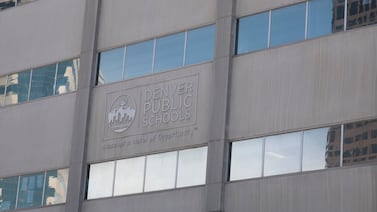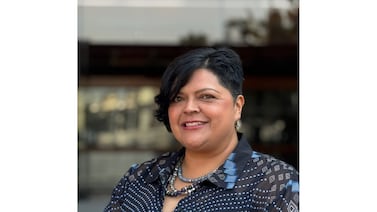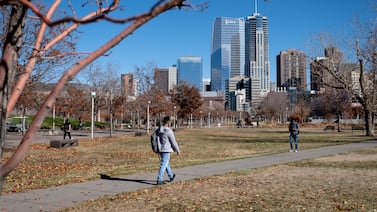This story was reported with Green Philly through the Philadelphia Journalism Collaborative.
In a school district that struggles to balance aging infrastructure, funding challenges, and equitable service to a largely low-income population, advocates say that prioritizing climate preparedness could proactively reduce costs, improve health, and retain staff.
Philadelphia schools are experiencing the impacts of climate change. The beginnings and ends of the academic calendar are increasingly hotter with each year, leading to more school closures and early dismissals that send students home. On the days in which students remain in hot classrooms, studies have found that students are unable to learn, while the cost of cooling buildings becomes steeper as fossil-fuel powered energy sources deplete.
According to district data, nearly 26,000 students at some 57 district schools currently have “inadequate cooling” systems. That’s more than 26% of the district’s 218 school buildings.
The district’s extensive facilities upgrades planning process, years in the making, has echoed parts of these concerns. According to the school district’s survey and stakeholder feedback from families and teachers, 56% called improving air conditioning a high priority; 34% of respondents named installing energy-saving measures a high priority as well.
School staff and community activists say they’ve known that many school buildings need upgrades, but the COVID-19 pandemic brought to the forefront the “very specific concern for air quality and amplified calls for proper heating and cooling systems,” explained Katy Egan, an educator and the co-chair of the Safe Air for Philly Schools campaign launched by the Philly Democratic Socialists of America. “HVAC systems not only make classroom temperatures better, but they also filter.”
Air quality is connected to rising global temperatures. Heat waves coincided with poor air quality for several days just this past summer in Philly.
But for Egan and many others, the most pressing concern in the facilities upgrades process is the looming threat of school closures. As part of facility improvements, the district aims to modernize and renovate some schools – but will also shutter an undefined number of schools throughout the city. Community and advisory group members say the process for community engagement regarding closures has been lacking in accuracy and transparency, and at times, seems to have been simply a public relations tool.
This month, the district announced it would delay the release of its closure plan in an effort to gather more community feedback.
“I think [the district] is paying lip service to community participation and using that to manufacture consent for school closures,” said Egan. “We are glad that they are talking to community members; I don’t believe that they are fully listening.”
Egan said she thinks that the district places environmental concerns low on their list of priorities. “I think they don’t view it as their responsibility,” Egan said.
Monique Braxton, a spokesperson for the district, however, said in an email that climate preparedness is a priority in the long-term facilities planning process. She pointed to the development of a transportation plan to transition from diesel to low- and zero-emission school buses. She also said that the facilities plan is prioritizing more climate-resilient infrastructure, including a Guaranteed Energy Savings Agreements Program and green stormwater management systems.
Other stakeholder responses during the facilities feedback sessions echoed Egan’s stance. Out of 333 comments on capital and environmental investments, more than one-third were about equity, and about a quarter were calls for greater transparency.
Akira Drake Rodriguez is an assistant professor of urban planning at the University of Pennsylvania and member of the district’s Education and Community Partners Advisory Group for the facilities planning process.
Rodriguez said that the district is failing to strategize for the long-term. She says that conversations with facilities planners do not include a concrete, ongoing building maintenance plan. “We basically only have emergency maintenance,” said Rodriguez. “And when there are emergencies, then you’re paying two and three times the amount for emergency trades to come out and emergency repairs to be done.”
As the impacts of climate change, like rising temperatures and flooding, are expected to become more prevalent, Rodriguez said those maintenance emergencies may become more frequent each year.
Rodriguez believes that it is a “no-brainer” to include sustainability plans in the facilities upgrades process. “If you’re in the process of doing a facility plan, why not think proactively about how to make school facilities greener in an effort to both reduce costs, retain students, retain staff?”
Rodriguez co-authored a study along with Samantha Shasanya that examined school district sustainability plans for justice and equity. The authors discovered that the ability to think proactively and long-term is key to building a successful sustainability and climate action plan.
The barriers that Philly’s school district faces to proactive planning, however, are steep. “It’s really hard to be proactive in Philly because there’s always a crisis,” said Rodriguez. Earlier this year, the children’s advocacy group Children First PA released a report revealing the dismal state of Philadelphia’s children and families. Titled “A decade of stalled progress,” the report found that many school district children withstand high levels of poverty, food insecurity, teacher turnover, and language barriers.
The report also found environmental factors at home and school including poor indoor air quality and exposure to lead and mold “exacerbate respiratory health disparities, leaving affected children at higher risk of missed school days, hospital visits, and chronic complications.”
Hence, school districts that have successfully implemented climate change preparations tend to be smaller and a bit wealthier. Denver is one such school district.
Denver as a model
With half of the enrolled students and a median income that is roughly $28,000 more, the Denver school district may not encounter the same level of challenges as Philadelphia. Nevertheless, Denver scored higher than Philadelphia for justice and equity in Rodriguez and Shasanya’s study for their sustainability and climate action plan, or SCAP.
Miles Hoffman, the operations manager of the Sustainability team at Denver Public Schools, said that much of the progress and the high score of the district’s SCAP comes down to placing students at the center of the work. “The development of the CAP was really a student-led movement supported by the district,” explained Hoffman.
Hoffman said students have seen the impact of climate change firsthand. Wildfires – like the Marshall fire of 2021 that tore through neighboring Boulder County – are becoming more frequent and more destructive in the state as the planet warms. “This was a reaction and response to climate change” from the students, said Hoffman.
DPS Students for Climate Action is the award-winning campaign that led that response. Students spoke in front of the school board and developed the climate action plan with the sustainability team. The plan was then adopted and is now policy.
“Having it as a board policy gives us a leg to stand on,” said Hoffman. “It is well-communicated and well-understood that climate action is of great importance.”
Baked into the plan is clear language regarding equity and environmental justice: a recognition that Black and brown communities bear the brunt of climate change, as is the case in Philadelphia. The district prioritized running EV buses through underserved communities first; is building solar projects that will help offset energy costs for district families; and is utilizing a heat and air quality vulnerability map to prioritize HVAC upgrades throughout the district. They are installing AC at 29 schools, 20 of which will be air source heat pumps.
Denver Public Schools aligned its SCAP with that of the city, since it was clear that reaching the city’s climate goals would depend on the action of the district. Hoffman says the district meets regularly with the city, and that departments outside of the sustainability teams have ownership over shared goals. He feels that that ownership creates a sense of urgency for all parties to collaborate.
The School District of Philadelphia introduced its first SCAP back in 2016 called GreenFutures, which was modeled after Greenworks, former Mayor Nutter’s sustainability plan. Under this plan, SDP has been able to enter into contracts with Philadelphia Energy Authority to improve energy efficiency in 24 schools and has partnered with the city’s Philly Tree Plan. The district also partnered with Philadelphia Gas Works to conduct a study on the feasibility of geothermal energy at John F. McCloskey Elementary and a neighboring recreation center.
They are now working on the second version of the plan, GreenFutures 2.0, yet to be released. Rodriguez hopes that there can be greater collaboration between the city and district in the next plan. Moreso, though, she hopes it will be a priority.
“Climate change isn’t going away, so schools are going to have to eventually green themselves.”
Angie Bacha is a Philadelphia-based solutions journalist, you can reach her at angiebacha1@gmail.com








